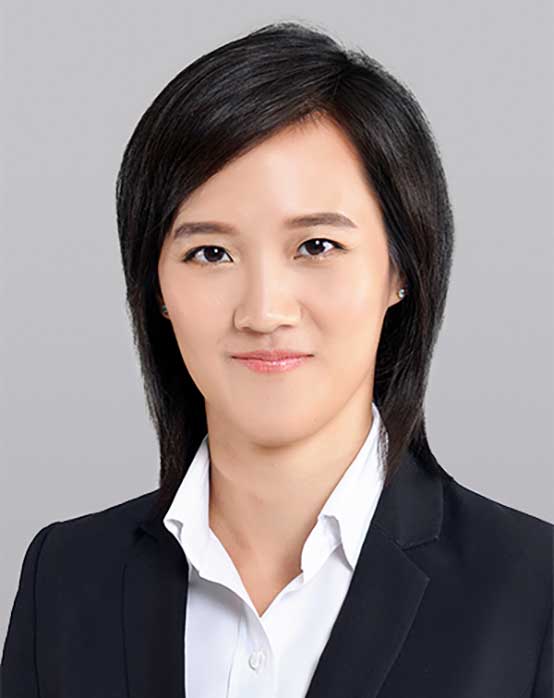This article is designed to explain how the law works in relation to inheriting Housing and Development Board (HDB flats). It can be a confusing area of law to understand, and there are many things that can influence the process. For example, it is important to know whether the deceased person left a valid Will when they died or not. Also, does the HDB flat have any other owners? If you—the person inheriting the flat—own other properties or flats, that can also have an impact on the situation.
If you are a co-owner of an HDB flat, and the other owner dies, then it's important to understand how the inheritance rules work in this situation. Make sure you know what the implications are for your ownership, and how to protect your affairs.
You should always look at the latest policy conditions on the HDB website. HDB's website sets out the prevailing eligibility criteria that proposed flat owners must meet before taking over ownership of an HDB flat. Proposed owners must physically occupy the flat upon the ownership change. The application for a change in flat ownership (not through a sale) is subject to HDB’s approval based on the prevailing eligibility conditions.
HDB Inheritance and Religion
This is an important topic as religion may affect the law around inheriting HDB flats, and it varies between Muslims and non-Muslims. The situation can be summarised as follows:
- Deceased Muslim flat owner, no Will: Syariah Law Faraid will govern how the HDB flat is dealt with.
- Deceased Muslim flat owner, leaving a Will: only one third of the property can be bequeathed by the owner—the remainder will be distributed by the court, according to the principles of Faraid.
- Deceased non-Muslim flat owner, no Will: the Intestate Succession Act will govern how the HDB flat is dealt with. A beneficiary or relative can ask the court to be appointed as the trustee in order to manage the process.
- Deceased non-Muslim flat owner, leaving a Will: the Will must be proved and executed through the probate procedure. The process should be managed by the appointed trustee or executor, according to the Probate and Administration Act.
HDB Inheritance and Different Types of Property Ownership
Here is a helpful reference guide which explains how different types of property ownership affects HDB inheritance. Co-ownership can complicate matters; be clear on how the property is co-owned:
- Joint tenancy
This form of ownership is where all co-owners have an equal share in the flat. When one dies, their interest passes automatically to the remaining eligible owners. To be an eligible co-owner, you must be a Singapore citizen or permanent resident, and be 21 years old or more. A joint tenancy overrides a will, so whether the deceased had a Will or not is irrelevant here.
- Tenancy-in-common
In this form of ownership, each owner has a separate interest in the HDB property.
If one owner dies, inheritance laws dictate how their ownership share is transferred—it doesn’t get transferred to the remaining owners automatically.
If the deceased owner left a Will, their share of the property is distributed according to the provisions of that Will. If they died intestate (without a Will) then their share of the flat is dealt with under the Intestate Succession Act.
- Sole Ownership
In the case of a non-Muslim who solely owns an HDB flat, if they had no Will then the flat is sold and their spouse and children share the proceeds. The spouse receives 50%, and the children receive the other 50% divided equally among them.
When there is no surviving spouse or parents, but there are children, they will then inherit the flat in equal proportions. When there is no spouse or children, but living parents, they inherit the flat in equal shares. If the deceased is single and has no remaining family alive, the government receives the flat.
The HDB Inheritance process
When an HDB flat owner dies, there are many issues to be resolved, but below is a brief summary. To ensure that the inheritance process is fully complied with, beneficiaries should speak to a lawyer.
Death of a joint tenancy owner: in this case, the remaining owner should submit a Notice of Death to the Singapore Land Authority (SLA). They can do this either directly at the SLA, or with the help of the Housing and Development Board. There are certain necessary documents that must be submitted, such as the Death Certificate. Other legal requirements of the Notice of Death are that it must be witnessed by someone of at least 21 years of age, typed and printed.
Death of an owner in a tenancy in common: the family of the deceased should engage a lawyer to obtain Grant of Probate.
Death of an intestate person: If the deceased died intestate (without a Will) then an application must be made to the court by a lawyer for the Grant of Letters of Administration. Once they have the legal authority from the court to start managing the estate, the administrator or executor should then register their legal right to do so.
Documents to be included in the application process are
- Original copies of the Grant of Letters of Administration, or Grant of Probate
- The Will
- For Muslim estates: the original Inheritance Certificate from Syariah Court must be included in the application process.
Once these requirements have been fulfilled, the new owners can have the interest in the HDB flat transferred to them.
If a Beneficiary Owns Private Property Already
Owners of private property or owners who have disposed of private property within the last 15 months may take over the ownership of an HDB flat if they meet the following:
- The existing flat owner has fulfilled the requisite occupation period
-
At least 1 of the proposed owners is a Singapore Citizen
-
All proposed owners and listed occupiers must continue to live in the flat upon the change in flat ownership.
If the beneficiary is already an HDB flat owner
The proposed owners must not be a current owner or essential occupier of:
- An HDB flat
- A DBSS flat, or an Executive Condominium (EC) unit (within its 5-year Minimum Occupation Period) bought from a developer.
If the beneficiary already owns commercial property
In that case, the HDB flat can be kept by the beneficiary, as long as the commercial property they own doesn’t contain a residential component.
Possible complications
If the law on HDB ownership is followed correctly, then there shouldn’t be any serious problems. But care should be taken in some specific areas. For example, sometimes an informal arrangement regarding the mortgage means that the owner on paper is not the mortgage payer.
The beneficial owner of the flat may be someone entirely different to the name on paper. Sometimes, the person paying the mortgage will have to give proof of these payments in order to protect their interest in the property. This is easy enough if they paid the mortgage out of their CPF (Central Provident Fund), but if they used other forms of income then it may be more complex.
HDB ownership amongst siblings can be complicated, as demonstrated in the case of Ong Chai Koon and others v Ong Chai Soon [2021] SGHC. The case did not deal specifically with inheritance, but it does show how hard it can be to prove who pays a mortgage.
If you want to stipulate how your HDB flat is inherited and by whom, you should set this out in your Will, otherwise there may be conflict amongst your surviving family members or co-owners. A Will ensures your first choice of person inherits the flat.
If you own an HDB flat, speak to a lawyer who practises inheritance law and ask them to explain the intricacies of HDB inheritance.
Likewise, as a co-owner of an HDB flat, make sure you also understand inheritance law, succession, and intestate succession, in order to protect your rights.


